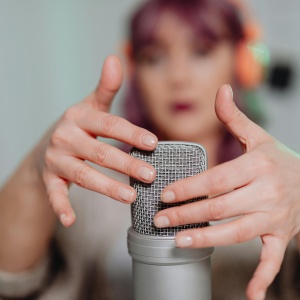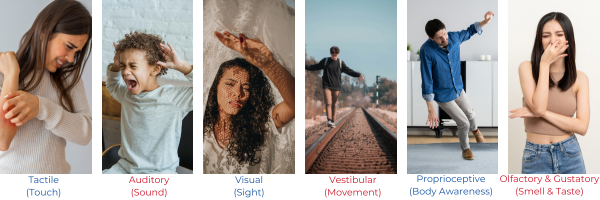Occupational Therapy for Sensory Processing Disorders: Techniques and Benefits in Dubai

Occupational Therapy for Sensory Processing Disorders: Techniques and Benefits in Dubai
A city celebrated for its dynamic energy and diverse experiences, Dubai presents a unique sensory landscape. For individuals and families navigating Sensory Processing Disorders (SPD), this vibrant environment can sometimes feel like a complex puzzle. Understanding the role of Occupational Therapy (OT) is key to unlocking strategies that transform sensory challenges into manageable experiences.
What is Sensory Processing Disorder?
Imagine a symphony where the instruments play out of sync. This is somewhat analogous to SPD. It’s a neurological condition where the brain struggles to organize and interpret sensory information from the environment. This can affect any of the senses:

Sensory Processing Disorder – ABLE UK
- Tactile (Touch): Sensitivity to textures, clothing tags, or even light touch.
- Auditory (Sound): Overwhelmed by loud noises or difficulty filtering background sounds.
- Visual (Sight): Sensitivity to bright lights, patterns, or visual clutter.
- Vestibular (Movement): Difficulty with balance, coordination, or motion sickness.
- Proprioceptive (Body Awareness): Difficulty understanding body position, leading to clumsiness or seeking out deep pressure.
- Olfactory (Smell) and Gustatory (Taste): Sensitivity to certain smells or textures of food.
In Dubai, with its bustling malls, diverse cultural events, and constant development, individuals with SPD may face heightened challenges.
Why Occupational Therapy?
Occupational Therapists are experts in helping people participate in their daily activities. For individuals with SPD, OT focuses on:
- Sensory Integration: Helping the brain better process and respond to sensory input.
- Adaptive Strategies: Teaching individuals how to manage sensory sensitivities in different environments.
- Improving Functional Skills: Enhancing skills needed for daily life, such as dressing, eating, and socializing.
Techniques Used in Occupational Therapy for SPD:
In Dubai, Occupational Therapists utilize a variety of techniques tailored to the individual’s needs. Here are some common approaches:
- Sensory Diets:
→ A personalized plan of sensory activities designed to provide the right amount of sensory input throughout the day.
→ This might include activities like deep pressure massages, swinging, or playing with textured materials.
→ In Dubai, with its access to various parks and indoor play areas, these activities can be easily integrated into daily routines. - Sensory Integration Therapy:
→ Using play-based activities to challenge the individual’s sensory systems in a controlled and supportive environment.
→ This helps the brain learn to process sensory information more effectively.
→ Example: using a ball pit for tactile and proprioceptive input. - Environmental Modifications:
→ Adjusting the environment to reduce sensory overload.
→ This could involve using noise-canceling headphones in busy areas, dimming lights, or creating a quiet space at home.
→ Dubai’s homes and schools can be modified to provide these sensory friendly spaces. - Therapeutic Listening:
→ Using specially designed music to modulate the auditory system.
→ This can help improve attention, focus, and emotional regulation. - Deep Pressure Techniques:
→ Applying firm pressure to the body to provide calming and organizing sensory input.
→ This can be achieved through weighted blankets, compression garments, or deep pressure massages. - Movement-Based Activities:
→ Utilizing swinging, balance boards, and other movement activities to improve vestibular and proprioceptive processing.
→ Dubai’s indoor play areas and parks offer ample opportunities for these activities.
Benefits of Occupational Therapy for SPD in Dubai:
- Improved Daily Functioning: Individuals can better manage daily tasks, leading to increased independence and confidence.
- Enhanced Social Skills: Reduced sensory overload can improve social interactions and communication.
- Better Emotional Regulation: Learning to manage sensory sensitivities can lead to fewer meltdowns and increased emotional stability.
- Increased Academic Performance: For children with SPD, OT can improve focus, attention, and learning abilities.
- Greater Participation in Community Activities: Individuals can more comfortably participate in Dubai’s diverse cultural and recreational events.
- Reduced Anxiety: By understanding and managing sensory input, individuals can experience a significant reduction in anxiety.
- Better sleep: Many children with SPD struggle with sleep. OT can help to create a calming bedtime routine, and help with sensory regulation before bed.
Finding Occupational Therapy Services in Dubai:
Dubai offers a growing number of OT services specializing in SPD. When searching for a therapist, consider:
- Credentials and Experience: Ensure the therapist is licensed and has experience working with SPD.
- Specialized Training: Ask about their training in sensory integration and other relevant techniques.
- Child-Friendly Environment: For children, a welcoming and engaging therapy space is crucial.
- Parent Involvement: Look for therapists who involve parents in the therapy process and provide home-based strategies.
- Cultural Sensitivity: Dubai is a multicultural city, ensure the therapist is able to understand and work with a variety of cultural backgrounds.
Embracing a Sensory-Friendly Life in Dubai:
Living with SPD in a bustling city like Dubai requires understanding, patience, and effective strategies. Occupational Therapy provides the tools and support needed to navigate the sensory world with confidence. By seeking professional help and implementing sensory-friendly practices, individuals with SPD can thrive and fully participate in the vibrant life Dubai offers.
Conclusion:
Occupational Therapy for Sensory Processing Disorders in Dubai offers a pathway to a more comfortable and fulfilling life. By understanding SPD, utilizing effective OT techniques, and creating supportive environments, individuals can navigate sensory challenges and embrace the opportunities that Dubai provides.
